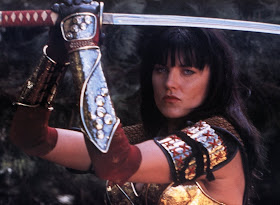President Obama's recent public endorsement of Amazon - delivered in Amazon's warehouse in Chattanooga, Tennessee no less - has generated a firestorm of criticism from just about everybody: the GOP (which considers anything Obama says to be an "old idea"), The American Association of Booksellers (which called it "greatly misguided"), and competing online booksellers (which immediately dropped their prices in response to Obama's "grand bargain" comment).
The truth is that even though Amazon has not reported a profit in years, its clout in the publishing industry is tremendous. Even mighty dinosaurs like Random/Penguin are shifting their publishing strategies to compete with the Amazon model (which is to sell lots and lots of stuff for cheap - regardless of quality - while shifting overhead expenses onto independent sellers, in this case, authors).
There can be no doubt that Amazon's slash-and-burn policies are hurting brick-and-mortar retailers like Barnes & Noble, which rely on higher-priced physical book sales. Other online booksellers are also suffering. In an effort to win back some of Amazon's huge market, Overstock dropped its prices to 10% below Amazon's. The result? Amazon slashed its prices even further, making it impossible for Overstock to even think about turning a profit.
Why is Amazon driving other publishers out of the industry?
Because it can. In spite of antitrust laws, monopolies are the rule of the day in the publishing industry. There are only five major publishers left, which have gobbled up the lion's share of the print market. Amazon is simply following suit. It is also worth pointing out that Amazon is more diversified than traditional publishers. It sells everything. In that regard it is more like Walmart than Random/Penguin. And in the fine Walmart tradition, it stiffs its employees, busts unions, and buys influence.
Money Talks: Politicians Walk
After Jeff Bezos, founder of Amazon, announced he was buying the Washington Post (for a cool $250 million), the media were quick to point out that Amazon's influence had already extended deep into the political realm.
Amazon is no stranger to hawking its goods to the feds. It was an undisclosed contributor to the Obama campaign, cheerfully donating its cloud infrastructure services, which easily outstripped Romney's unreliable IT. What's more (conspiracy theorists will love this!), Amazon has strong economic ties to the CIA, which recently signed up Amazon to build a private cloud infrastructure for a tidy $600 million.
According to the FCW's March 18th report:
"Amazon Web Services will help the intelligence agency build a private cloud infrastructure that helps the agency keep up with emerging technologies like big data in a cost-effective manner not possible under the CIA's previous cloud efforts."With those kinds of connections Amazon doesn't have to turn a profit on its books. It can run at a loss for decades, which, in some respects, is no different from laundering money through real estate "losses" (a favorite accounting trick of the Mafia).
Too much information
At this point, you, the humble author, are feeling overwhelmed. What has all this got to do with whether you self-publish your book or follow a more traditional publishing route? And, who do you root for? Amazon, with its open-door policy, or the giants, with their musty, and somewhat self-righteous, air of respectability (which you hope will somehow rub off on you)?
As an author, you should root for neither. As far as the publishing industry is concerned, nobody has your best interests in mind. It's a dirty business. And it's only getting dirtier.

No comments:
Post a Comment
Note: Only a member of this blog may post a comment.